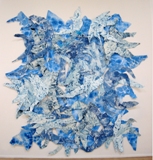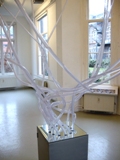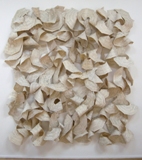

19 February--27 February 2010
Oetewalerstraat 73
1093 MD
The
Select a room to view:
This work
uses sculpture, sound and music to explore the nature of water as both nurturer
and destroyer. The environment is created with wall reliefs in two side rooms, a
water sculpture in the central room, and eight-channel surround sound throughout
the space. The water sculpture uses bubbling colored water and movement
synchronized with the musical texture. The music embraces numerous sources from
ancient Chinese melodies to electronic music to natural water sounds.
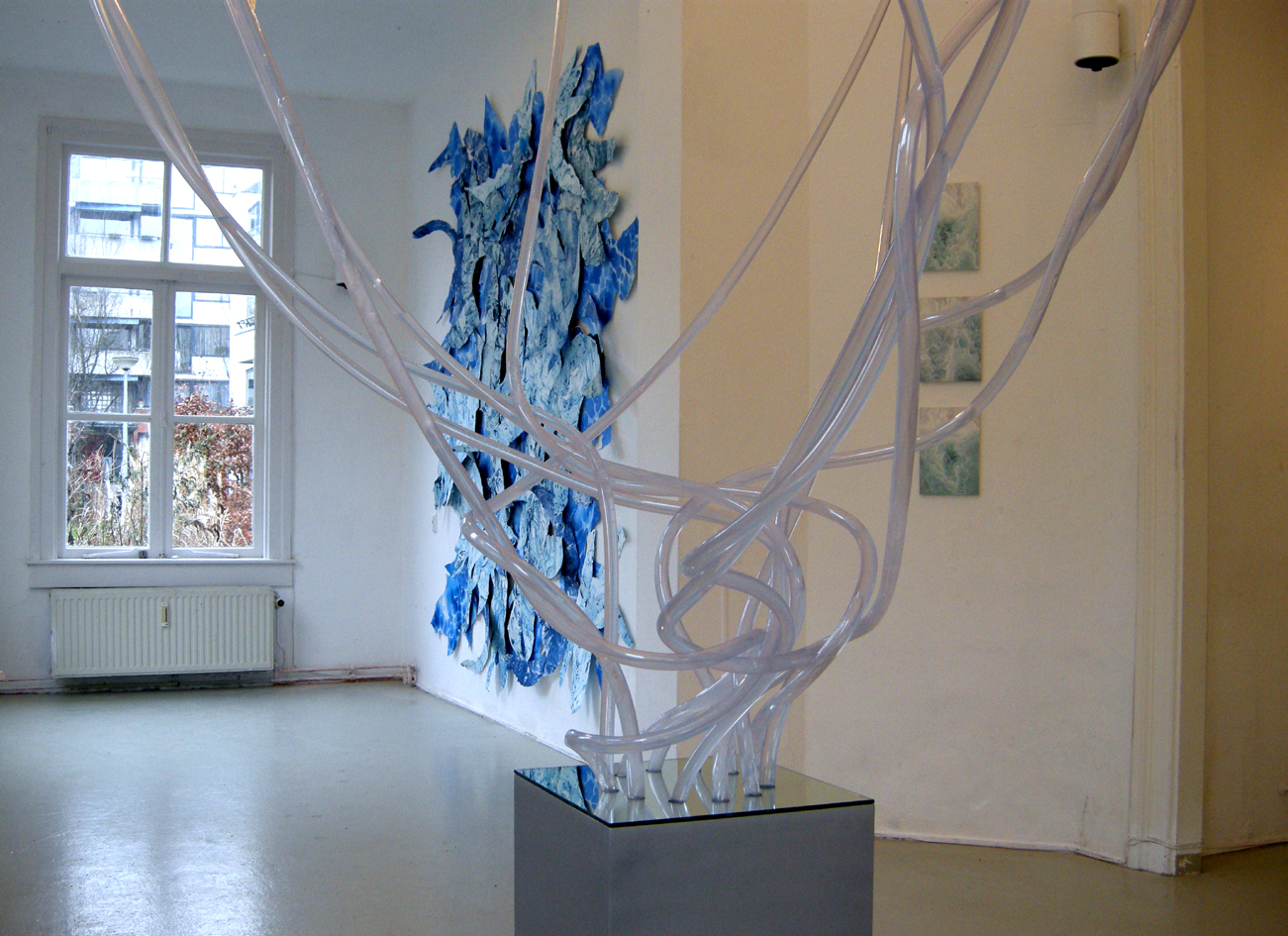
Their
approach continues from their show riverrun (2008) in New York inspired by a 17th century
Chinese treatise, the Mustard Seed Garden
Manual of Painting which says, 'See how water strikes the mountain
and pierces the rocks; it has supernatural strength, nothing is stronger.'
Their 2009 show in the
Dydo
and Haire have been developing installations focusing on water for more than
three years. Regarding the issues raised by the present exhibition, they say
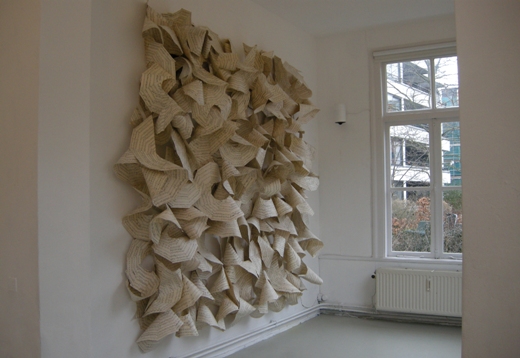
One of the
wall reliefs, Desertmusic, is made
from 800 pages of old sheet music, unwanted leftovers from an almost dead
culture of chamber music performance in the home. It has been replaced by
television and revolutions in music and electronics, which are available to
people all over the globe. Like the new technologies we are finding to alleviate
the world’s water problems, we have to give up some cherished concepts and
look forward thoughtfully and compassionately to what will replace them.
|
|
